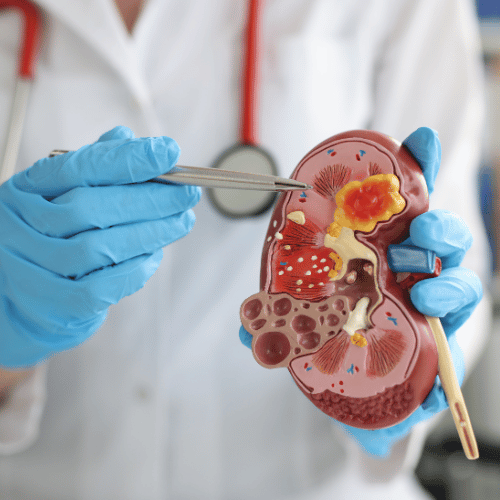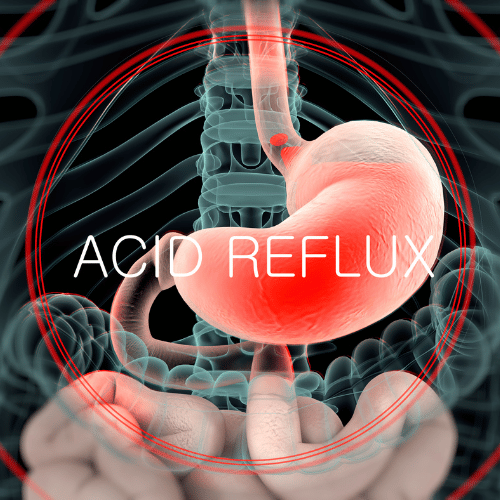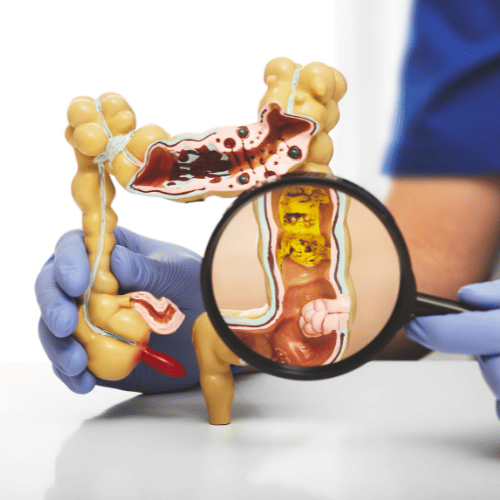
10 Warning Signs of Toxic Kidneys
The kidneys are crucial organs in our body, responsible for filtering waste and toxins from our blood.
Understanding and recognizing the signs of kidney distress is essential for maintaining good health.
Now, let’s begin our journey into understanding the critical warning signs that your kidneys may be in trouble.
10. Swelling in Your Ankles, Feet, or Hands
Kicking off our list at number 10 is swelling in your ankles, feet, or hands. This can be a telltale sign of kidney issues.
The kidneys play a crucial role in maintaining the balance of fluid and electrolytes in your body.
When they aren’t functioning properly, they can struggle to remove excess fluid from the body, leading to retention.
This retention often manifests as swelling, medically known as edema, in the lower extremities like the ankles and feet, and sometimes in the hands.
Swelling due to kidney problems may be accompanied by other symptoms, but it can also be the first noticeable sign.
It’s important not to ignore this symptom, especially if it’s persistent or accompanied by other changes in your health.
If you notice unusual swelling in these areas, especially if it’s not related to an injury or excessive standing or walking, it might be time to consult with your doctor to check on your kidney health.
Early detection and intervention can make a significant difference in the management of kidney-related issues.
9. Changes in Urination
At number 9 on our list of warning signs for toxic kidneys is changes in urination.
Your kidneys play a key role in urine production, and any significant change in your urinary habits can be an indicator of kidney distress.
Some of the changes to watch out for include an increased urgency to urinate, a decrease in urine output, darker urine, or the presence of blood in the urine.
Increased urgency or frequency, especially without a corresponding increase in fluid intake, can indicate that your kidneys are struggling to filter and excrete waste properly.
On the other hand, decreased urine output might suggest that your kidneys are not producing urine efficiently, which can be a sign of kidney failure.
Darker urine can be a result of dehydration, but if you’re drinking plenty of fluids and still notice a darker color, it could be due to the kidneys not filtering properly.
Blood in the urine, medically known as hematuria, is a significant warning sign.
While it can have other causes, it’s essential to get it checked out as it can be an indicator of kidney disease or even kidney stones.
8. Fatigue and Weakness
At number 8 in our countdown is fatigue and weakness. These symptoms can be particularly telling as they often reflect deeper issues with kidney function.
One of the critical roles of the kidneys is to convert vitamin D into its active form, which is essential for maintaining muscle and bone strength.
When your kidneys are not functioning optimally, this conversion process is hindered, leading to deficiencies in active vitamin D.
This deficiency can have a significant impact on your body.
Vitamin D is crucial for calcium absorption, which is essential for strong bones and muscles.
A lack of active vitamin D due to poor kidney function can lead to muscle weakness and fatigue.
Additionally, the kidneys are responsible for the production of erythropoietin (EPO), a hormone that stimulates the production of red blood cells.
When kidney function is compromised, the production of EPO decreases, which can lead to anemia.
Anemia, in turn, exacerbates feelings of fatigue and weakness.
It’s important to note that while fatigue and weakness can be symptoms of various conditions when they are persistent and accompanied by other symptoms of kidney distress, they warrant a closer look at kidney health.
If you’re experiencing these symptoms, it’s advisable to consult with a healthcare professional to rule out kidney issues and ensure proper treatment.
7. Shortness of Breath
Moving on to our countdown is number 7: shortness of breath.
This symptom can be particularly alarming, as it often indicates more serious underlying health issues.
In the context of kidney health, shortness of breath can occur if kidney disease leads to fluid buildup in the lungs, a condition known as pulmonary edema.
As mentioned before, our kidneys play a crucial role in maintaining fluid balance in the body.
So when they are not functioning properly, they may fail to remove excess fluid efficiently.
This excess fluid can then accumulate in different parts of the body, including the lungs.
When fluid builds up in the lung tissue and the space around the lungs, it can interfere with normal breathing, leading to shortness of breath.
Additionally, impaired kidney function can lead to anemia due to reduced production of the hormone erythropoietin.
Anemia can result in decreased oxygen delivery to the body’s tissues, including the lungs, which can also contribute to shortness of breath.
It’s important to recognize that shortness of breath can be caused by a variety of health issues, not just kidney problems.
However, if you’re experiencing this symptom along with other signs of kidney distress, it’s crucial to seek medical attention promptly.
6. Dry and Itchy Skin
At number 6 in our list of kidney distress signs is dry and itchy skin. This symptom might seem unrelated to kidney health at first glance, but it can actually be a significant indicator of kidney issues.
Healthy kidneys do more than just filter waste from your blood; they also play a vital role in maintaining the right balance of minerals and nutrients in your body.
When the kidneys are not functioning correctly, this balance can be disrupted, leading to skin problems.
One of the primary functions of the kidneys is to maintain the proper balance of fluids and electrolytes, including calcium and phosphorus, in the body.
If the kidneys are failing, they may not be able to keep these levels in check. An imbalance in these minerals can lead to dry, itchy skin.
Additionally, the build-up of waste products in the blood (a condition known as uremia) due to poor kidney function can also cause severe itching and skin dryness.
Dry and itchy skin can be more than just uncomfortable; it can be a sign of the body’s struggle to maintain essential internal balances.
Consulting with a healthcare professional can help determine if your skin condition is related to kidney health and guide you toward the appropriate treatment.
5. Metallic Taste in the Mouth
Occupying the 5th spot on our list of warning signs for toxic kidneys is experiencing a metallic taste in the mouth.
This unusual taste sensation, often coupled with bad breath, can be a subtle yet significant indicator of kidney issues.
When the kidneys are not functioning properly, they can struggle to filter and eliminate toxins effectively from the body.
This accumulation of toxins can lead to changes in taste, including a metallic taste in the mouth.
The buildup of certain substances, such as urea in the bloodstream, is a common result of impaired kidney function.
When urea is broken down in the saliva, it produces ammonia, which can cause a metallic taste or bad breath.
This change in taste can also affect your appetite and the way you perceive the flavor of food, which can further impact your nutritional intake and overall health.
It’s important to be aware that while a metallic taste in the mouth can be caused by various factors, including certain medications, dental problems, and dehydration, it can also be a sign of kidney problems, especially if accompanied by other symptoms of kidney distress.
4. Nausea and Vomiting
Coming in at number 4 on our list of kidney distress signals is the experience of nausea and vomiting.
These symptoms can be particularly distressing and may indicate a serious underlying health issue, such as kidney dysfunction.
When your kidneys are not functioning effectively, they may fail to filter out waste products from your blood properly. This build-up of toxins can lead to feelings of nausea or the urge to vomit.
The kidneys play a crucial role in maintaining overall homeostasis in the body, including the balance of electrolytes and the removal of waste products.
When they are compromised, this balance is disrupted, leading to a range of symptoms including nausea, vomiting, a general sense of feeling unwell, and even a loss of appetite.
Nausea and vomiting caused by kidney dysfunction are often chronic and can significantly impact the quality of life. They may also lead to dehydration and a further decline in kidney function, creating a vicious cycle of worsening symptoms.
3. Feeling Cold
At number 3 on our list of signs indicating potential kidney problems is a persistent feeling of being cold, even in warm environments.
This symptom might seem unrelated to kidney health at first, but it can actually be a significant indicator of anemia linked to kidney disease.
The kidneys play a vital role in the production of erythropoietin (EPO), a hormone that stimulates the bone marrow to produce red blood cells.
When kidney function is impaired, the production of EPO can decrease, leading to anemia – a condition characterized by a reduced number of red blood cells or a lack of hemoglobin in these cells.
Hemoglobin is responsible for carrying oxygen from the lungs to the rest of the body. When you have anemia, your body tissues may not get enough oxygen, which can leave you feeling cold.
Anemia related to kidney disease is often a chronic condition and can have various symptoms, including fatigue and weakness, alongside a persistent sensation of coldness, even in environments that are not objectively cold.
This sensation is particularly noticeable in the extremities like the hands and feet.
It’s important to be aware that while feeling cold can have many causes, including other health conditions and external factors, if it’s persistent and accompanied by other symptoms of kidney issues or anemia, it’s advisable to consult with a healthcare professional.
They can provide a proper diagnosis and appropriate treatment to manage the symptoms and address the underlying causes.
2. Dizziness and Trouble Concentrating
Occupying the 2nd spot on our list of signs signaling potential kidney issues are dizziness and trouble concentrating.
These symptoms can be particularly telling, as they often point towards an underlying health issue like anemia associated with kidney dysfunction.
The kidneys are responsible for producing erythropoietin (EPO), a hormone that is crucial for the production of red blood cells.
When kidney function is compromised, EPO production can decrease, leading to anemia.
As we’ve mentioned earlier, anemia is characterized by a reduced number of red blood cells or lower hemoglobin levels in these cells, which can result in less oxygen being transported to the brain and other parts of the body.
This decreased oxygen flow to the brain can manifest as dizziness, difficulty concentrating, a general sense of mental fog, and even lightheadedness.
These symptoms can disrupt daily activities and impact cognitive functions. In cases of chronic kidney disease, these symptoms may progressively worsen as kidney function continues to decline and anemia becomes more severe.
1. Lower Back Pain
And at number 1, the top warning sign of potential kidney issues is lower back pain, particularly in the area around the kidneys.
This symptom is crucial and should not be overlooked, as it could be indicative of several kidney-related problems, including kidney stones or more generalized kidney dysfunction.
The kidneys are located on either side of the spine, just below the rib cage.
Pain or discomfort in this area can be a direct indicator of stress or damage to the kidneys.
Kidney stones, for example, can cause intense and sharp pain as they move through the urinary tract.
This pain can come in waves and may also be accompanied by other symptoms such as nausea, vomiting, and blood in the urine.
Other kidney problems, such as infections or cysts, can also manifest as a dull, aching discomfort in the lower back.
In some cases, this pain might be mistaken for typical backache or muscle strain, but if it’s persistent and accompanied by other symptoms of kidney trouble, it should be taken seriously.
If you experience this type of pain, particularly if it’s new, severe, or accompanied by other symptoms such as changes in urination, swelling, or fever, it’s advisable to consult with a healthcare professional.
Early diagnosis and treatment of kidney issues can be key to preventing further complications and maintaining overall health.
And there you have it—the 10 warning signs that your kidneys might be experiencing distress.
Recognizing these signs is crucial, as they can indicate potential issues with one of the most important organs in your body.
If you notice any of these symptoms, it’s essential to take them seriously and consult a healthcare professional.
Spreading awareness about kidney health is vital, and you can help others by sharing this information.
We also invite you to share your thoughts or personal experiences related to kidney health in the comments below.
Your insights could be invaluable to someone else watching.
We’re committed to bringing you valuable health insights and tips.









